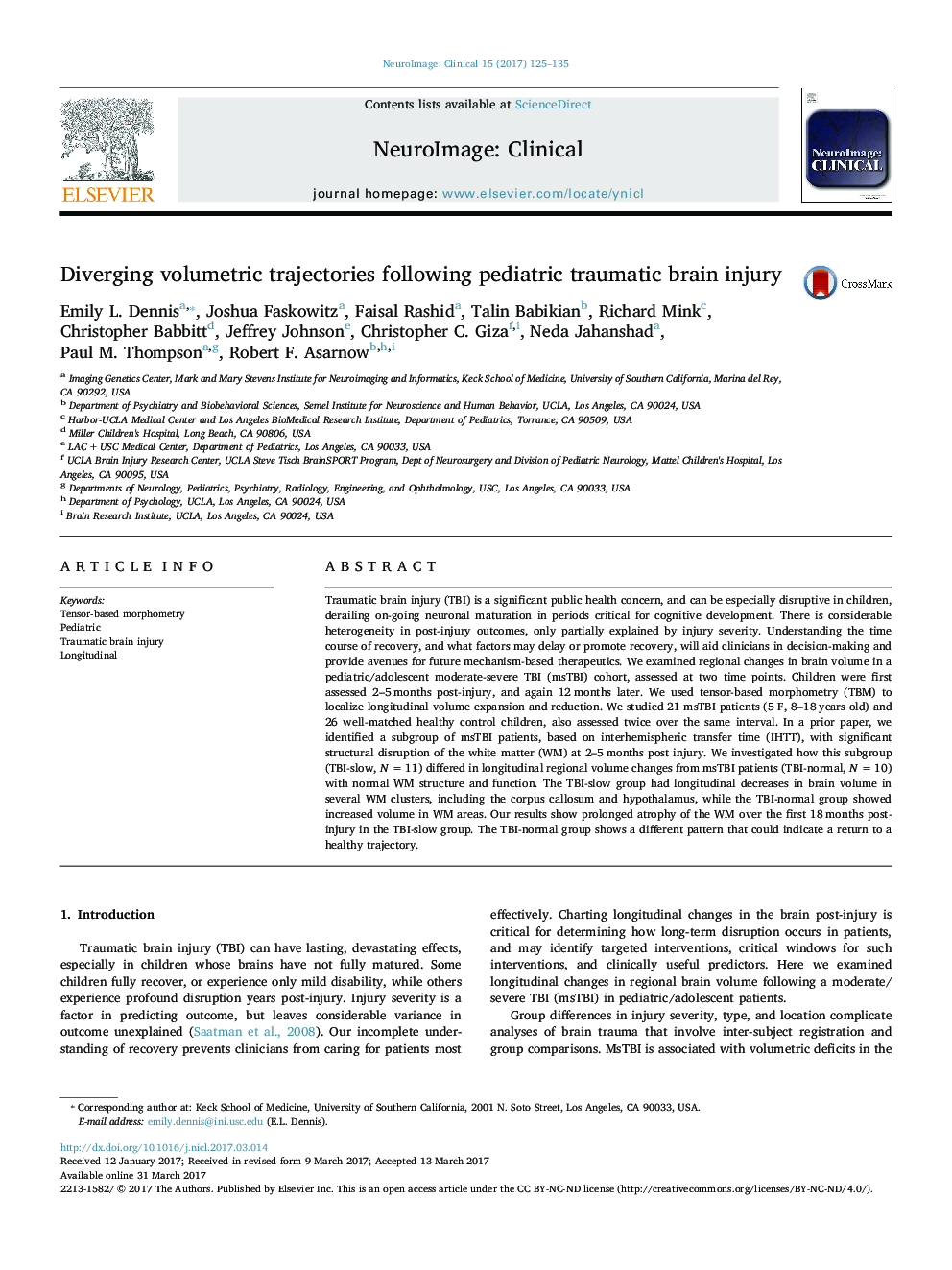| Article ID | Journal | Published Year | Pages | File Type |
|---|---|---|---|---|
| 8688388 | NeuroImage: Clinical | 2017 | 11 Pages |
Abstract
Traumatic brain injury (TBI) is a significant public health concern, and can be especially disruptive in children, derailing on-going neuronal maturation in periods critical for cognitive development. There is considerable heterogeneity in post-injury outcomes, only partially explained by injury severity. Understanding the time course of recovery, and what factors may delay or promote recovery, will aid clinicians in decision-making and provide avenues for future mechanism-based therapeutics. We examined regional changes in brain volume in a pediatric/adolescent moderate-severe TBI (msTBI) cohort, assessed at two time points. Children were first assessed 2-5Â months post-injury, and again 12Â months later. We used tensor-based morphometry (TBM) to localize longitudinal volume expansion and reduction. We studied 21 msTBI patients (5 F, 8-18Â years old) and 26 well-matched healthy control children, also assessed twice over the same interval. In a prior paper, we identified a subgroup of msTBI patients, based on interhemispheric transfer time (IHTT), with significant structural disruption of the white matter (WM) at 2-5Â months post injury. We investigated how this subgroup (TBI-slow, NÂ =Â 11) differed in longitudinal regional volume changes from msTBI patients (TBI-normal, NÂ =Â 10) with normal WM structure and function. The TBI-slow group had longitudinal decreases in brain volume in several WM clusters, including the corpus callosum and hypothalamus, while the TBI-normal group showed increased volume in WM areas. Our results show prolonged atrophy of the WM over the first 18Â months post-injury in the TBI-slow group. The TBI-normal group shows a different pattern that could indicate a return to a healthy trajectory.
Related Topics
Life Sciences
Neuroscience
Biological Psychiatry
Authors
Emily L. Dennis, Joshua Faskowitz, Faisal Rashid, Talin Babikian, Richard Mink, Christopher Babbitt, Jeffrey Johnson, Christopher C. Giza, Neda Jahanshad, Paul M. Thompson, Robert F. Asarnow,
